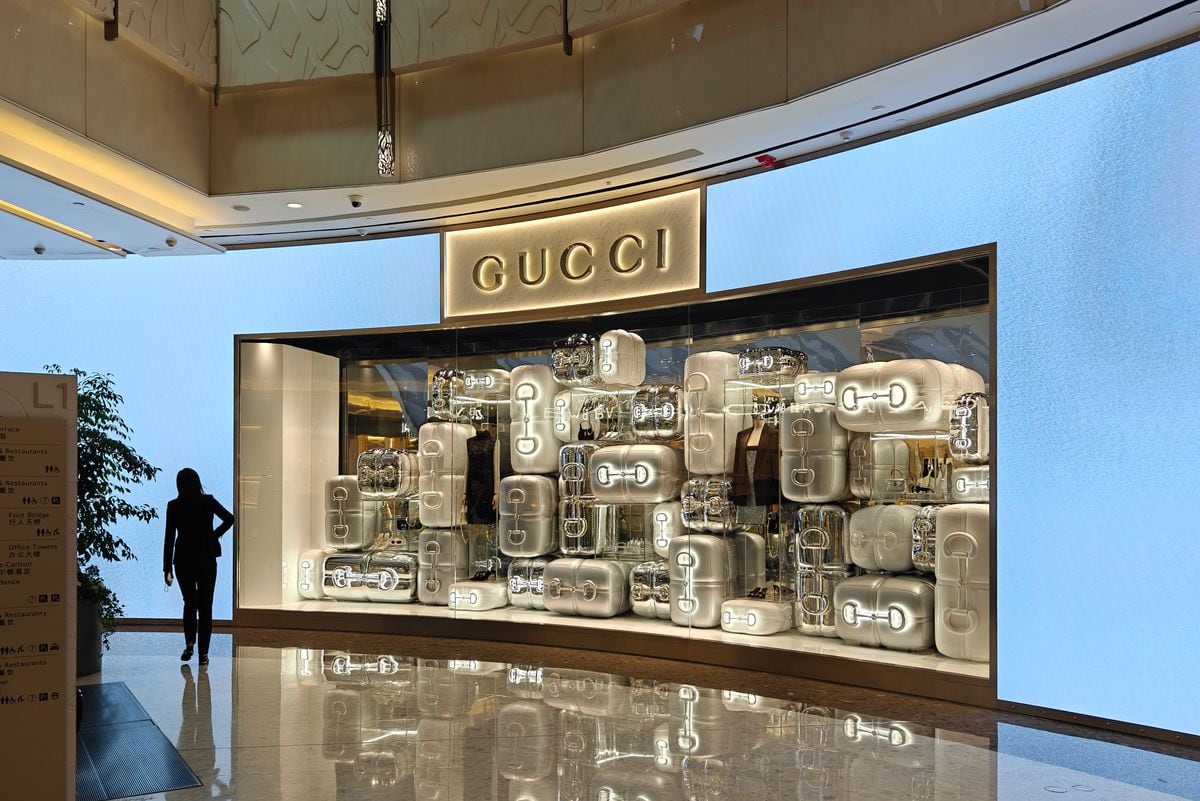Kering is going through a difficult time. Even its CEO, François-Henri Pinault, admits as much. The French luxury empire, one of the sector’s most important groups, issued a profit warning to the market, alerting it that sales performance during the first quarter was 10% lower than expected a few months ago. This bad streak is not new and is mainly the result of poor sales of its flagship brand, Gucci, in China. In addition to the Italian brand, the most important one in its portfolio, the company controls other fashion houses such as Yves Saint Laurent, Bottega Veneta and Balenciaga.
The company’s difficulties have taken their toll on the stock market. On March 20, a day after the luxury empire warned of its poor quarterly figures, shares plummeted by up to 12%. One of the worst sessions in its history, it was a dark day for the company, which lost over €6 billion ($6.4 billion) in market capitalization. Kering is one of the primary drivers of the CAC 40, the main index of the French stock market along with L’Oréal, LVMH and Hermès. Over the past 12 months, its shares have lost 35% of their value.
Group revenues for the first quarter of 2024 will be published on April 23, following a year described as “difficult” by Pinault, who has been Kering’s CEO since 2005. Although the company’s revenue reached €19.57 billion ($20.88 billion) in 2023, it fell 4% (2% in comparable terms) as compared to 2022, when revenue was €20.35 billion ($21.72 billion). Meanwhile, net profit for the last financial year fell by 17% to €2.98 billion ($3.18 billion).
The figures highlight the difficulties that the French company is facing in the Chinese market, one of its main growth drivers; economic recovery following the end of the Draconian zero-Covid measures has not fully arrived there. The Asian giant is seeking to revive an economy weighed down by a depressed real estate market, low domestic demand and high youth unemployment. Fears of a slowdown among Chinese shoppers have hit Gucci hard; the brand accounts for over half of Kering’s sales and more than two-thirds of its profits. The Asian region (excluding Japan) accounts for 39% of the Italian brand’s profits. Its contribution to the Kering group’s total revenues is 35%.
A reassuring message
The situation is worrisome. In 2023, Gucci’s profits fell by 6% compared to the previous year (2% in comparable terms), standing at €9.87 billion ($10.54 billion). And for the first quarter of 2024, the luxury group anticipated that sales from the Florentine house founded in 1921 will be 20% lower compared to last year. Nevertheless, the company wanted to send a reassuring message: “The new collection has been very well received.”
For several months, Kering has been reorganizing around its flagship brand. “The priority is to get Gucci back on track,” although “that won’t happen overnight,” Pinault admitted after the annual results were presented. The changes have already begun. In July 2023, the billionaire appointed his then right-hand man, Jean-François Paulus, as the new president of the Italian firm. The French luxury group also decided to part ways with its iconic artistic creator, Alessandro Michele, and replace him with Sabato de Sarno.
In September, his first collection, Ancora, premiered at Milan Fashion Week, changing the brand’s direction and investing in new, more classic basics. The new line arrived in major Chinese cities in March, trying to woo consumers with pop-up stores and events with local influencers.
The next few months will be decisive in determining whether Kering’s executives have hit the right note. “The jury is out on whether the Chinese will like the Sabato De Sarno quiet luxury,” Bernstein analyst Luca Solca said in a recent note distributed to clients. “The bad news on Kering is company specific, but is also a good reminder that consumer confidence and discretionary spend in China is soft,” he added. For its part, the Bain & Company consultancy firm warned that “following an overall rebound last year, China’s luxury market is expected to grow at mid-single-digit in 2024.”
Betting on the goose that lays the golden egg has its risks. Over the years, the French company has been reducing its dependence on Gucci, although only minimally. But its other brands have not risen up to compensate for the Italian firm’s reduced sales. The group’s second-largest brand, Yves Saint Laurent, which accounts for about 16% of Kering’s profits, saw its revenues fall by 4% last year. The revenues of the third-largest brand, Bottega Veneta, fell by 5%. The “other houses” category, which includes the Spanish brand Balenciaga, whose image was damaged after a controversial marketing campaign, saw its revenues fall by 9% last year. The only group subsidiary to perform well was Kering Eyewear; it saw a record 38% rise in revenues.
In addition to the changes at Gucci, Kering launched a beauty division that it is looking to expand in the coming years; and took its first step with the acquisition of high-end perfume maker Creed in June 2023. Last summer, it also announced the purchase of a 30% stake in the famous fashion brand Valentino for €1.7 billion ($1.81 billion) from the Qatari fund Mayhoola. The aim is to continue investing in the conglomerate’s various houses. The impact of this investment strategy, as recognized by the group’s CEO, will affect results in the short term.
Sign up for our weekly newsletter to get more English-language news coverage from EL PAÍS USA Edition
